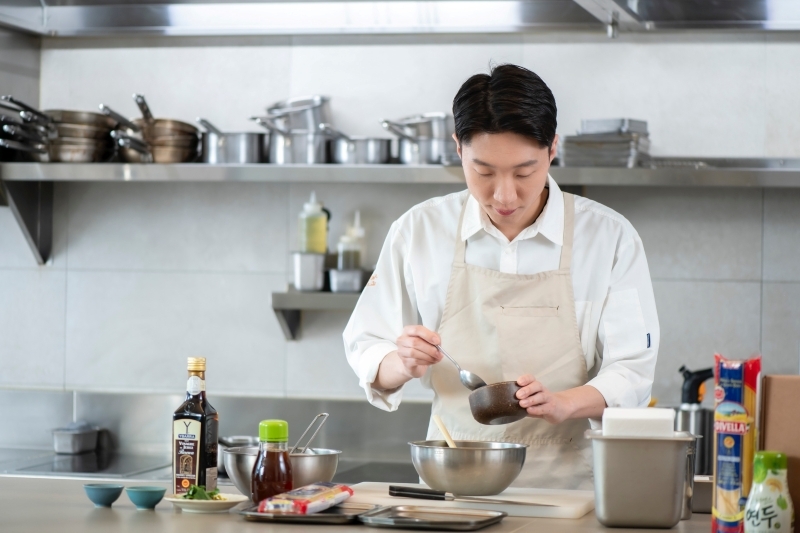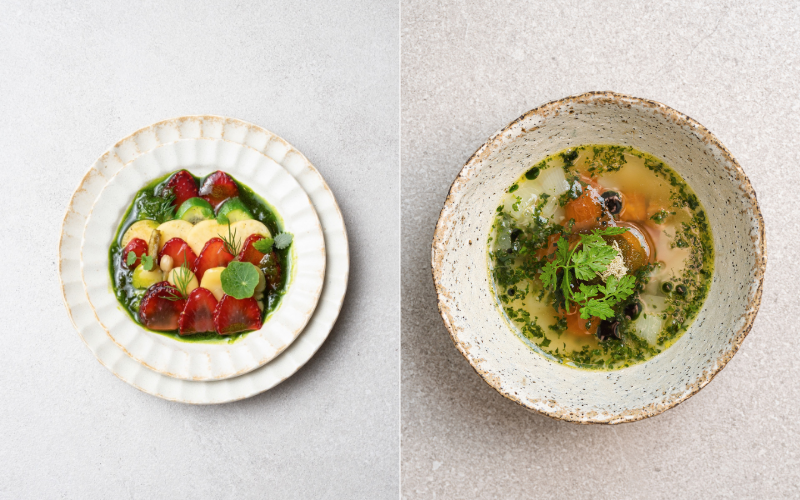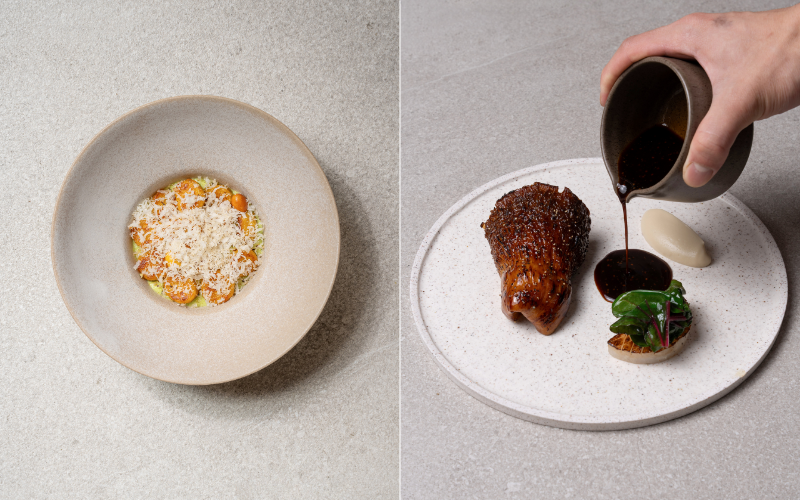- 한국어
- English
- 日本語
- 中文
- العربية
- Español
- Français
- Deutsch
- Pусский
- Tiếng Việt
- Indonesian
By Honorary Reporter Foteini Chatzoudi from Greece
Photos = Legume
Once considered a challenging city for vegans, Seoul offers diverse options that reflect a growing embrace of sustainability and global food trends.
The bistro Legume serves 100% plant-based cuisine while promoting sustainability through zero-waste recipes and the use of upcycled kitchenware. Opened in 2023, the establishment received its first Michelin star in this year's Michelin Guide Seoul & Busan, Asia's first vegan restaurant to earn this distinction.
Under the leadership of owner Sung Si-woo, who spent a decade as head chef at the acclaimed Seoul restaurant Soigne, Legume is a platform for sustainable gastronomy through vegan dishes that showcase locally sourced ingredients.
On March 20, Sung released his first cookbook "The Vegan Pantry," featuring recipes inspired by his journey and passion for vegan cooking.

Chef Sung Si-woo.
The following are excerpts from an email interview with Sung from Aug. 10-11.
Why did you open a fully plant-based gourmet restaurant in Korea?
In Korea, vegan options have traditionally been limited to salads, fast food using meat substitutes or (Buddhist) temple cuisine and are often seen as socially uncommon, discouraging even those interested in adopting a vegan diet. As a chef passionate about vegetable-forward cuisine, I wanted to showcase a fine dining course made entirely from plant-based ingredients to offer more appealing vegan options and challenge misconceptions about a vegan diet.
What role do traditional Korean techniques like fermentation play in your dishes?
Plant-based cuisine at Legume might be seen as Western, but is deeply rooted in traditional Korean techniques that are essential to my dishes. For example, broth-based dishes like guk (traditional soup) or jjigae (stew), often made with fermented vegetables such as kimchi or doenjang (fermented sauce), are widely enjoyed throughout Korea. As a nod to this culinary heritage, we present a clear broth crafted from other fermented vegetables using Korean methods and ingredients.

On the left is a salad comprising strawberries, cucumber, radish, fava beans and black bean puree and on the right is tomato soup made from cherry tomatoes, vegetables, Korean mint, white kelp and tempeh.
Name a few standout dishes at Legume.
One of our standout dishes is gnocchi crafted with chickpeas instead of potatoes. This pasta is paired with fernbrake and doenjang-fermented nuts, offering an unfamiliar yet captivating harmony of flavors. Another is the Awui mushroom, roasted and rested like a steak, to ensure a juicy texture. The finishing touch is a special sauce made from vegetable skins and fruit peels, reflecting our zero-waste philosophy.

Chickpea gnocchi (left) and Awui mushroom (right)
What is the biggest misconception about vegan dining that you hope to change?
I believe that vegan cuisine is not simply an alternative to health or personal beliefs. It can be enjoyed in everyday life beyond specific reasons. Moreover, it can stand on its own as a complete gastronomic experience, rich in flavor, creativity and sustainability.
How do you expect the growing vegan movement to affect Korea's culinary scene?
As the vegan movement grows worldwide, related dining options in Korea are expected to expand accordingly. More locals are likely to adopt a vegan diet in their daily lives, and this shift will attract more tourists to help Korea become a global gastronomic destination.
msjeon22@korea.kr
*This article is written by a Korea.net Honorary Reporter. Our group of Honorary Reporters are from all around the world, and they share with Korea.net their love and passion for all things Korean.